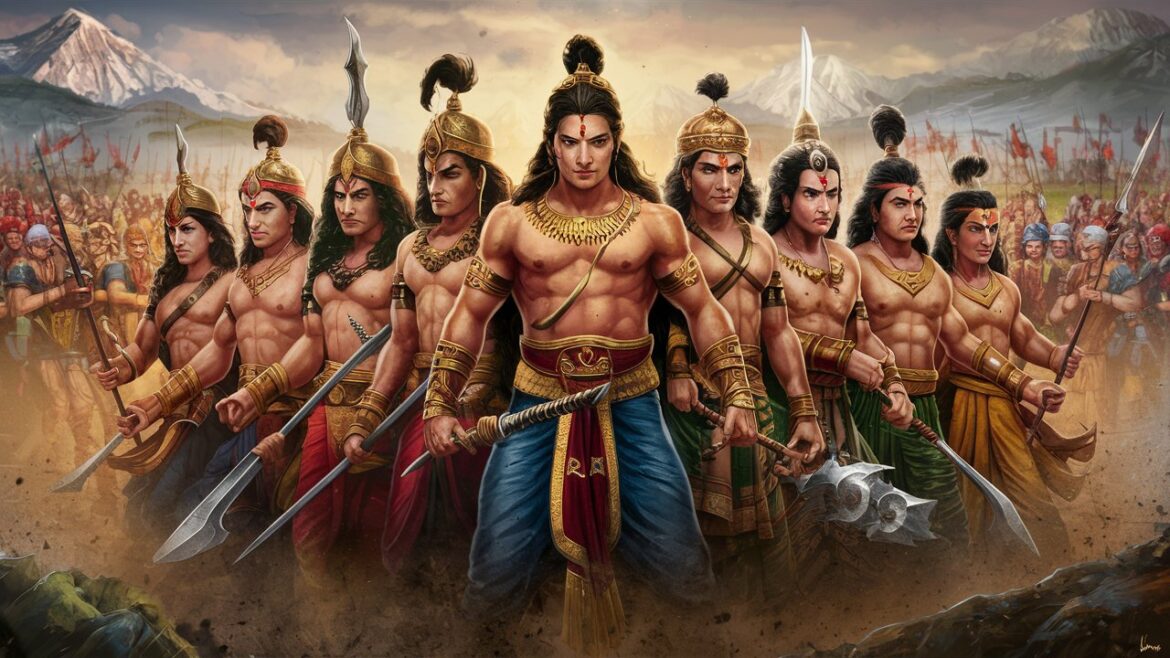In Hindu mythology, the 8 Vasus are a group of deities associated with natural elements and phenomena. These divine beings play a crucial role in maintaining the balance of nature and are often invoked for their protective and nurturing qualities. The Vasus are mentioned in various ancient texts, including the Rigveda and the Mahabharata, and their stories are deeply interwoven with the fabric of Hindu cosmology. Let’s delve into the significance and attributes of each of these celestial guardians.
The Origins and Significance of the Vasus
The word “Vasu” in Sanskrit means “dweller” or “resident,” indicating their role as inhabitants and protectors of the natural world. The Vasus are considered the children of the sage Kashyapa and his wife Aditi, or in some accounts, they are the offspring of Dharma and Vasu, one of Daksha’s daughters. These deities symbolize various aspects of nature and are often depicted as attendants of the king of the gods, Indra.
The Eight Vasus and Their Attributes
1. Dha (Dhara) – The Earth
Dha, also known as Dhara, represents the earth. As the foundation of all life, Dhara is a symbol of stability, fertility, and nourishment. She provides the resources necessary for the sustenance of living beings and is revered as a motherly figure who supports and nurtures all creatures.
2. Anila – The Wind
Anila, the god of the wind, embodies the vital life force known as prana. He is responsible for the movement of air and the breath of life that sustains all living beings. Anila’s presence is essential for the balance of the atmosphere and the flow of energy within the natural world.
3. Anala (Agni) – The Fire
Anala, also known as Agni, is the god of fire. He represents the transformative power of heat and light, which are crucial for survival and growth. Agni is not only the fire that burns in rituals but also the inner fire of digestion and metabolism. His purifying qualities are invoked in various ceremonies to cleanse and sanctify.
4. Apa (Varuna) – The Water
Apa, identified with Varuna, is the god of water. He governs all forms of water, from rivers and oceans to rain and dew. As a life-sustaining element, Apa is essential for the existence of all living beings. Varuna’s role also extends to upholding cosmic order and moral laws, ensuring harmony in the universe.
5. Prabhasa – The Dawn
Prabhasa represents the light of dawn, signifying the beginning of a new day and the dispelling of darkness. He is associated with the first light that heralds the arrival of the sun, bringing hope and renewal. Prabhasa’s energy is symbolic of new beginnings and the cyclical nature of time.
6. Soma – The Moon
Soma, also known as Chandra, is the god of the moon. He governs the lunar cycles, which influence various aspects of nature, including tides, plant growth, and human emotions. Soma is also associated with the elixir of immortality and the nectar of the gods, symbolizing rejuvenation and the eternal flow of time.
7. Aha – The Day
Aha, the deity of the day, represents the period of daylight governed by the sun. He embodies the qualities of clarity, visibility, and productivity. Aha’s presence is vital for the daily activities of life, providing the light necessary for growth and the pursuit of endeavors.
8. Dhruva – The Pole Star
Dhruva, the steadfast one, is identified with the Pole Star. He symbolizes stability, constancy, and the guiding light in the night sky. Dhruva’s story is one of devotion and perseverance, as he achieved his exalted position through unwavering faith and penance. He serves as a celestial guide for travelers and a symbol of steadfastness in the cosmos.
The Tale of the Vasus and Their Curse
One of the most famous stories involving the Vasus is their curse and subsequent reincarnation. According to the Mahabharata, the Vasus once stole the divine cow Nandini, belonging to the sage Vashishta. In retaliation, Vashishta cursed them to be born as mortals. As a result, they were born as the eight sons of Ganga and King Shantanu. To relieve them from their curse, Ganga drowned each of them at birth, except for the youngest, Prabhasa (also known as Dyaus), who was spared and later became Bhishma, a key figure in the Mahabharata.
Conclusion
The 8 Vasus hold a significant place in Hindu mythology as guardians of natural elements and cosmic order. Each Vasu represents a vital aspect of nature, reflecting the interconnectedness of all things. Their stories and attributes highlight the importance of respecting and preserving the natural world, reminding us of the divine forces that sustain life on Earth. Worshiping the Vasus not only honors these deities but also fosters a deeper appreciation for the environment and our place within the cosmic order.
Note: Blog based on publicly available information.


Leave a Reply